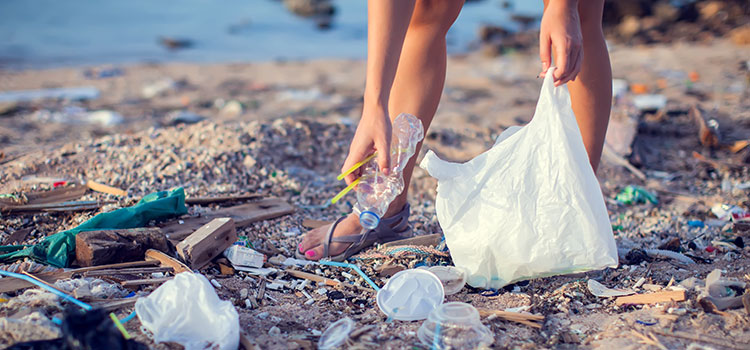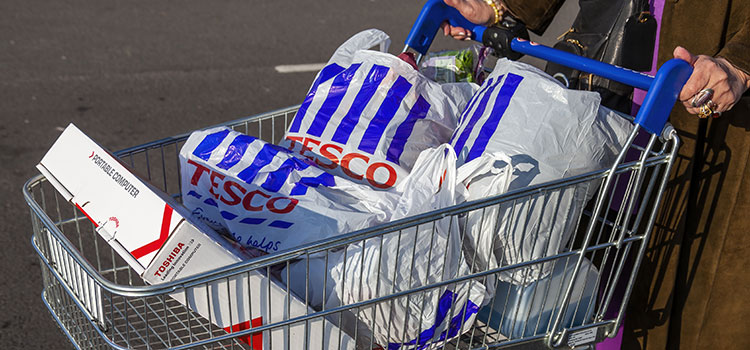Around 80% of UK environmental legislation has been derived from EU membership over the last 30 years, and with Brexit looming the Environment Bill seeks to address this governance gap.
The Environment Bill, in the broadest sense, signifies a legislative opportunity to strengthen current UK resource and waste management and provide a regulatory basis for future change. Specifically, it contains the powers necessary to instigate measures set out in the Resources and Waste Strategy, such as reforming the UK packaging producer responsibility system and introducing consistent household recycling collections.
As promised in the 2019 Conservative Manifesto, it also contains primary powers banning the export of plastic waste to non-OECD countries.
Modifications to the 1995 Environment Act allow for extended powers, not only in extended producer responsibility (EPR), but measures aimed at improving air quality and protecting water resources. It also permits for the creation of an independent watchdog, the Office for Environmental Protection, adding an aspect of governmental accountability previously not present, albeit arguably undermined by recent amendments.
Some of the most significant legislative changes, however, surround recycling and plastic pollution issues that have been repeatedly highlighted by the public and industry in recent years.

Key changes
Delays in passing the Environment Bill due to Covid-19 mean the Public Bill Committee are now scheduled to report by 1 December 2020 in the House of Commons. The bill will then move through the House of Lords before being granted Royal Assent.
It should be noted that most of the measures will require secondary legislation, and that government have pledged to ‘develop the evidence, identify full costs(…)and consult on detailed proposals’ before any measures are implemented. This article outlines key changes arising specifically from part 3 of the Environment Bill, ‘Waste and Resource Efficiency’, and we'll also explore how these regulatory tools could shape future resource use.
Sustainable production
This section of the bill contains important legislative power to widen the ‘polluter pays principle’ toward EPR, and introduce other waste streams in the future. These powers render producers of packaging responsible for the full net cost of the item, including end-of-life costs, and constitutes a significant expansion of the current producer responsibility system with much increased fees. For instance Schedule 4 (3) indicates regulations may be made for:
‘(a) preventing a product or material becoming waste, or reducing the amount of a product or material that becomes waste;
(b) sustaining a minimum level of, or promoting or securing an increase in, the re-use, redistribution, recovery or recycling of products or materials.’
Alongside overhauling the current producer responsibility landscape, the increased costs and modulated fee system are expected to drive innovation in sustainable and recyclable product design, supported by clauses setting out minimum standards of eco-design and a ‘shift towards durable, repairable and recyclable products’.

This legislative emphasis on future resource-efficiency standards means we can confidently expect national drives to emphasise product life cycle longevity and re-use initiatives. These could perhaps be in the form of measures against ‘planned obsolescence’, like France’s repairability rating.
With a direct view at both minimising but properly disposing of food waste, powers in the Bill such as the condition 45A (8) that ‘food waste must be collected at least once a week’ re-iterate the government’s commitment to more sustainable resource use. That said, the bill has not been without criticism, with lobbyists and stakeholders alike stating measures are too focused on ‘end of life’, and don’t meet waste hierarchy commitments outlined in the circular economy principles.
This critique can be evidenced by Schedule 6, which arguably undermines the principles previously laid out, with its singular focus on disposal costs:
‘2(1) In this Schedule the “disposal costs” of products or materials means such costs incurred in connection with the disposal of the products or materials as may be specified in the regulations.’
Sustainable consumption
Much of the regulatory power gained from the Bill involves implementation of clear labelling, to allow consumers to make more informed choices, alongside general powers granted to set resource efficiency requirements. Both these powers are aimed at promoting recyclability, durability and repairability. This said, there are no legal assurances that these requirements will not regress from EU standards, adding a degree of uncertainty to efficiency measures in the future.
Government will also take powers to enable future charges for single-use plastic products, outlined in Schedule 10, again to incentivise for sustainable purchasing, much like the current 5p plastic bag charge.

The statutory motivation is driven by the 25 Year Environment Plan promising to eliminate avoidable plastic waste, and is already manifested in the Plastic Packaging Tax which will be implemented next year:
‘52 (1)…confers powers on the relevant national authority to make regulations about charges for single use plastic items’.
Although any future single-use charges will ostensibly target the consumer, it will undoubtedly lead to a demand for alternative resources and material innovation from producers.
There are clear legislative powers for implementing a Deposit Return Scheme (DRS) in Clause 49, considering the latest consultation this will likely be for ‘all in’ drinks containers and implemented in 2023 alongside EPR and consistent collections. Whilst this is undoubtedly a positive step for promoting recycling of in-scope containers and capturing littered waste, the Bill is not clear on whether future waste streams may be included.
To conclude, the Bill certainly heightens governmental powers in the waste and resource industry, but as critics have pointed out, there are some areas in need of clarification and strengthening to actually deliver the desired environmental outcomes.
Here to help
If you have any questions or concerns about how the future changes could impact your business, please contact our team.

Louisa Goodfellow
Policy Manager
As Policy advisor Louisa provides key support to our team, including preparing reports on environmental policy issues and maintaining awareness of new developments. As such she will often be found coordinating responses to policy consultations, advocating policy positions and providing internal guidance to current legislation.

Latest News

Q2 2024 recycling data shows strong performance in H1
By Sam Marshall 24 Jul 2024
Ecosurety continue to step up for refill and reuse
By Victoria Baker 24 Jun 2024
Ecosurety renews B Corp™ certification with flying colours
By Louise Shellard 11 Jun 2024
Ecosurety sponsor the 2024 Carbon Literate Organisation Awards
By Louise Shellard 07 Jun 2024
